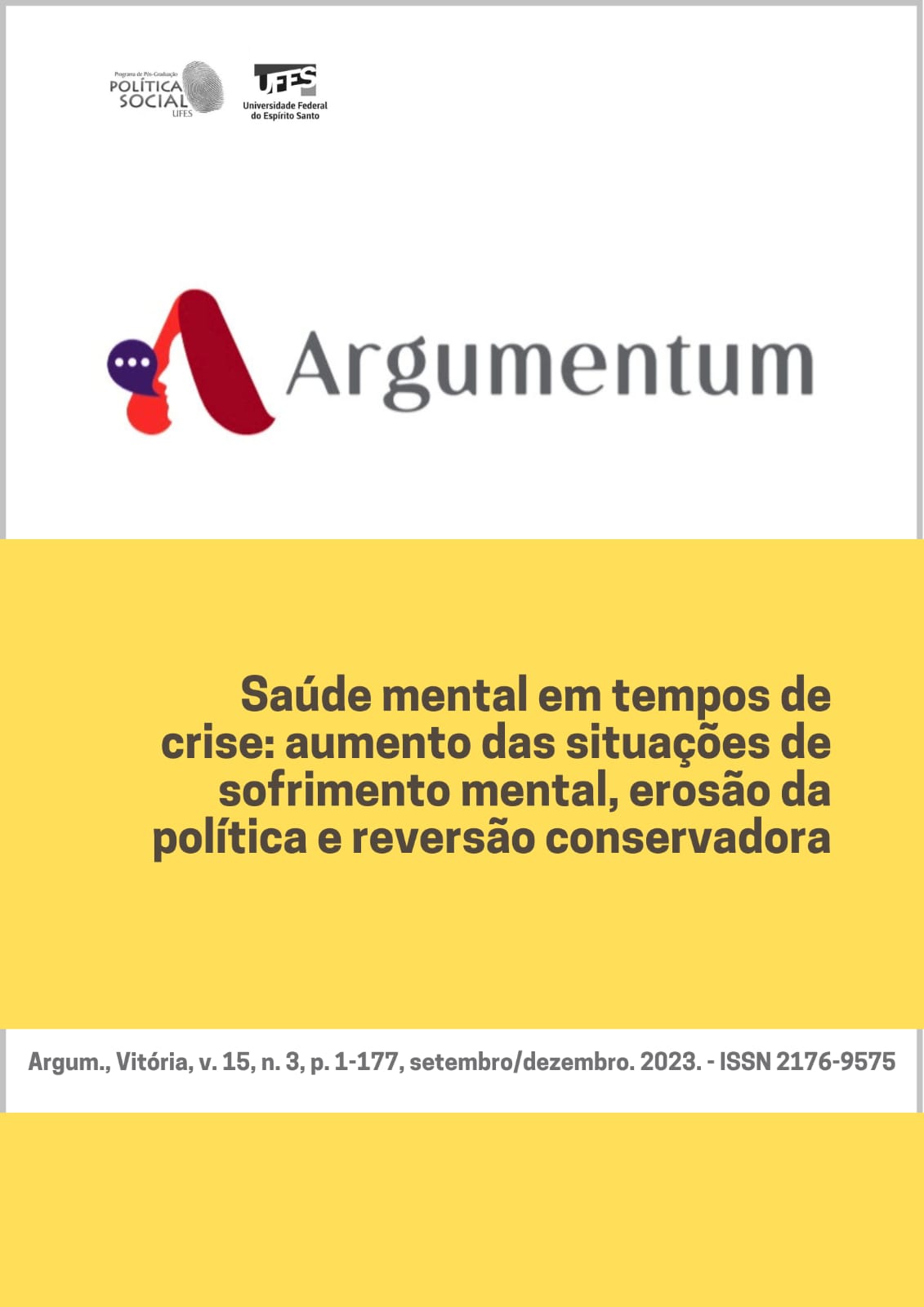Therapeutic Communities: the construction of an asylum and prohibitionist policy
DOI:
https://doi.org/10.47456/argumentum.v15i3.40033Abstract
This article presents a study on the National Policy on Mental Health, Alcohol and Other Drugs, showing how Brazilian Therapeutic Communities (TCs) form part of the care provided to drug users in Brazil. This is a documentary analysis of regulations, based on a bibliographical review. We observed that the TCs gained strength in a variety of political, social and economic scenarios, especially after 2015, and became the main institutions for the care of drug users financed by the public purse. We further note that TCs represent a call to the logic of the asylum. They are prohibitionist, and detain drug users, mostly men, black, and poor, under the logic of abstinence, forced labour, religiosity and discipline.
Downloads
Published
How to Cite
Issue
Section
License
Copyright Transfer Agreement
As a condition for submission, the authors must agree with the Copyright Transfer Agreement, by checking the box after reading the clauses.
The author(s) (hereinafter "AUTHOR") hereby agrees to transfer, without any financial compensation, the property of copyrights regarding Argumentum, a journal of the Postgraduate Program in Social Politics (Programa de Pós-graduação em Política Social), Federal University of Espírito Santo (Universidade Federal do Espírito Santo) - Av. Fernando Ferrari, 514 - Goiabeiras 29075-910, Vitória (Brazil), (hereinafter "ARGUMENTUM"), according to the following terms and conditions:
1. I am aware of the terms of "Care Ethics Research Guide" described in the Policies section.
2. AUTHOR warrants to be the writer and copyright holder of the WORK submitted.
3. AUTHOR declares that the WORK does not infringe the rights of third-parties; that the distribution of images (if existent) was authorized; and that AUTHOR assumes total moral and property responsibility for their content.
4. AUTHOR agrees to transfer all the copyrights concerning the WORK to ARGUMENTUM, especially the rights to edit, publish, translate into another language, and reproduce it through any process or technique. ARGUMENTUM becomes the exclusive owner of the rights regarding the WORK, and any total or partial reproduction, in any other medium, printed or electronic, is strictly forbidden without prior written consent by ARGUMENTUM.
5. The copyright transfer is unpaid and, therefore, there will be no monetary compensation whatsoever by ARGUMENTUM in order to use the TEXT.

